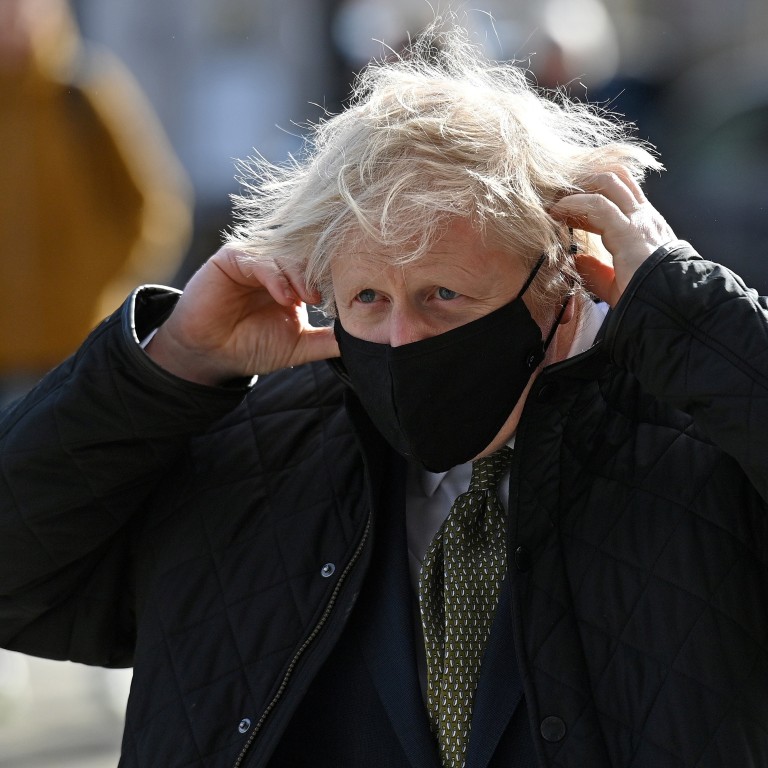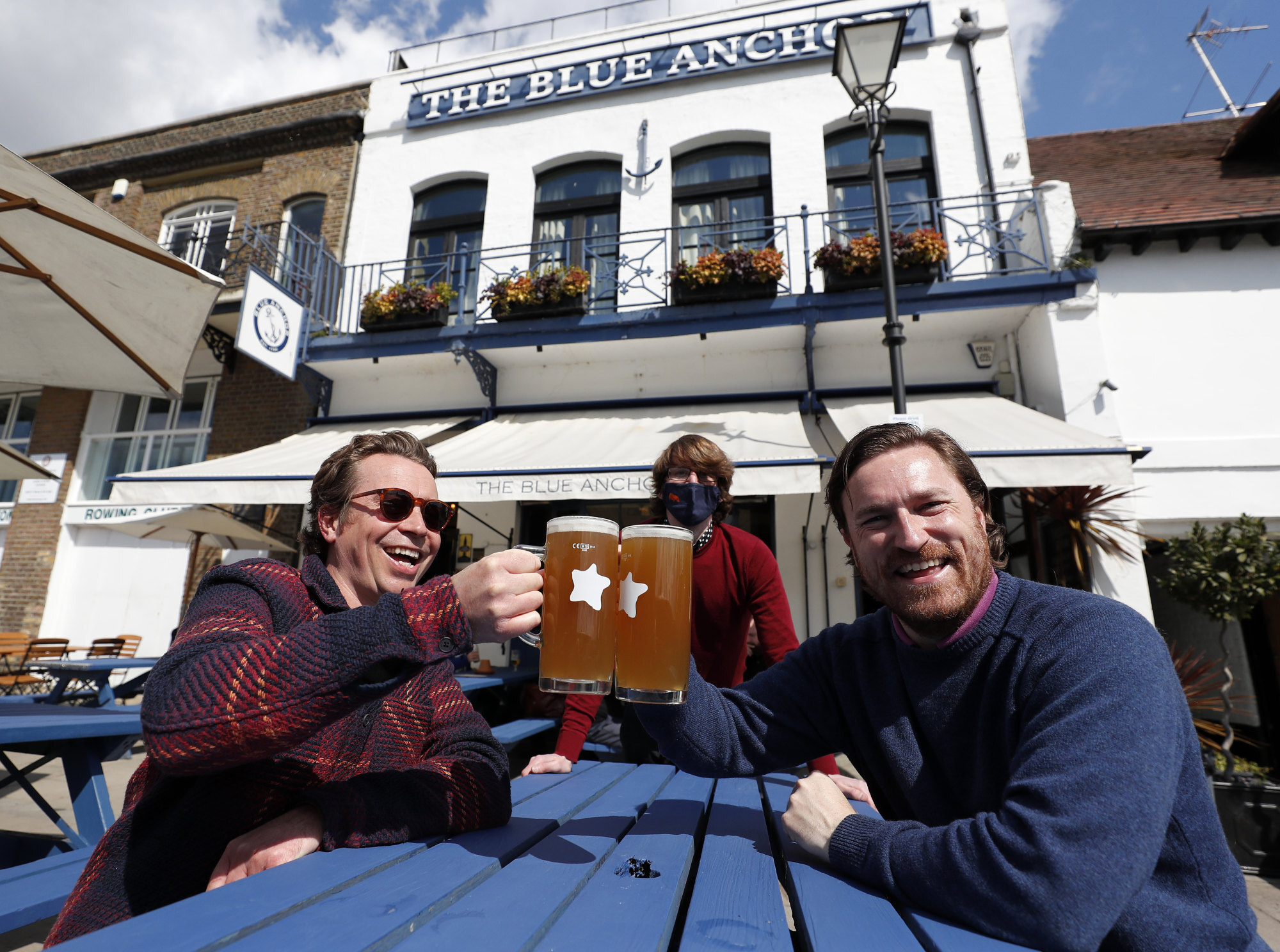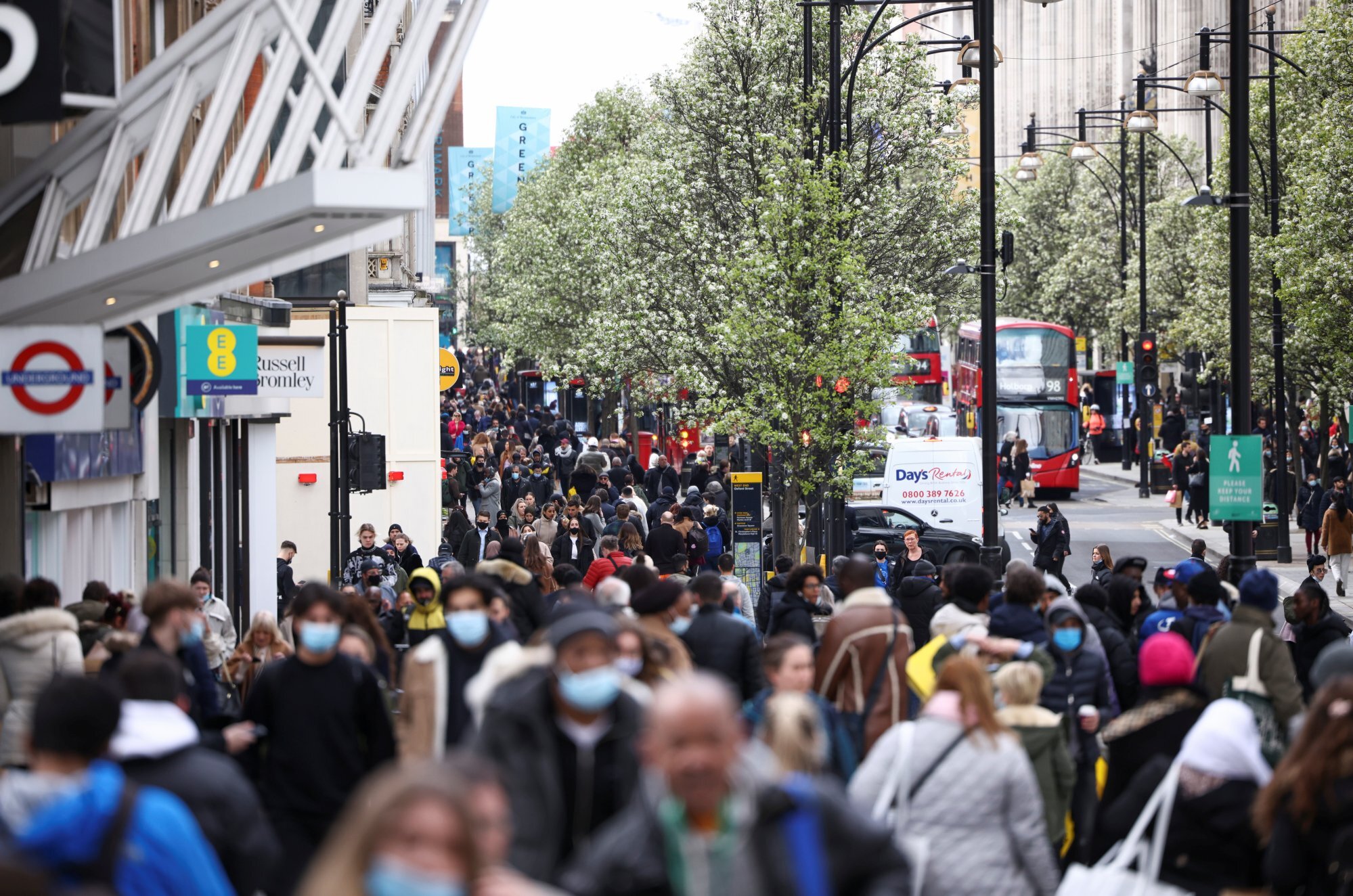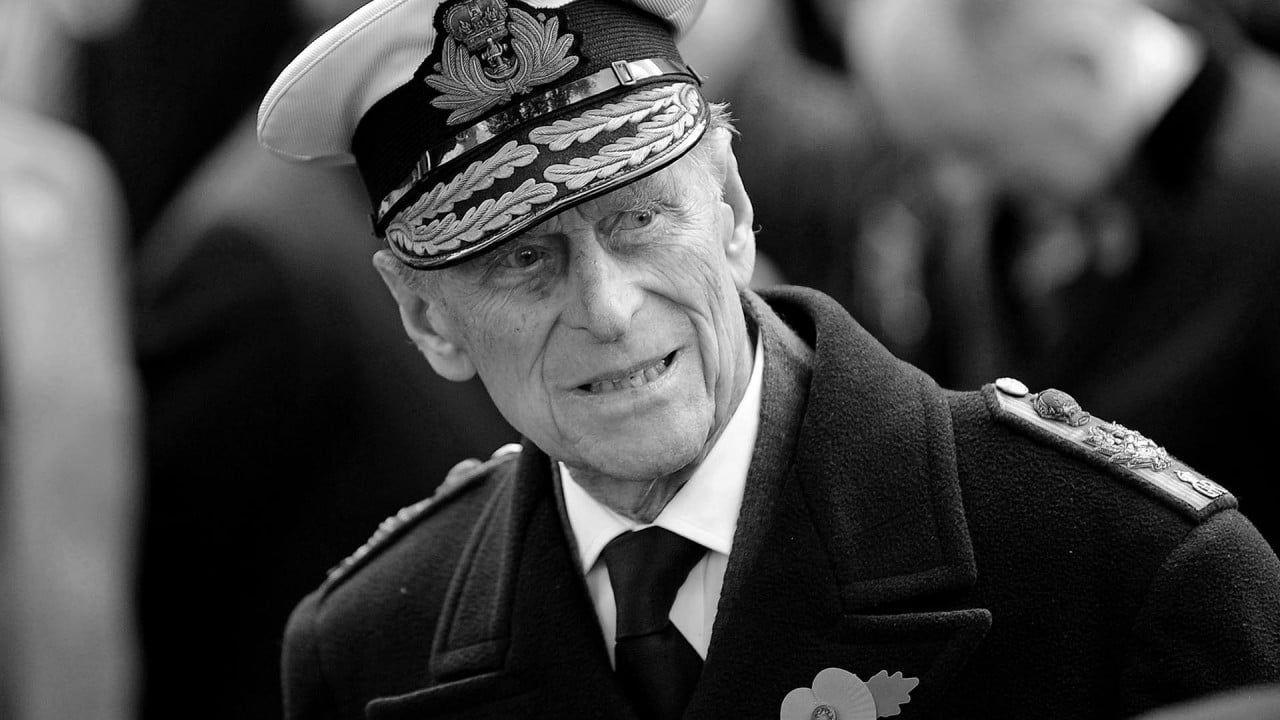
Boris Johnson gets a haircut as Britain eases some coronavirus restrictions
- Britons were celebrating with pints and haircuts on Monday as the country relaxed some of its Covid-19 controls
- The prime minister called the easing of restrictions ‘a major step forward in our road map to freedom’ but urged people to behave responsibly
Some pubs wasted no time and opened on the stroke of midnight. Others opened later – but still much earlier than normal, and just in time for breakfast.
“I work the night shifts in the hospital,” said Richard Newman, a 32-year-old doctor at the Royal London Hospital, as he waited with friends outside the Half Moon pub in east London at 9am.
“Hopefully, it’s the end of lockdown but who knows? What does it represent? Hopefully a nice summer. It should be fun, bringing back a bit of life to London.”
Britain could hit herd immunity by Monday, scientists say
On London’s Oxford Street, some shoppers braved chilly temperatures to start queuing at 5.30am, two hours before the first non-essential shops such as fashion chain Primark opened.
Also able to reopen are barbers and hairdressers, where demand is high for long overdue trims more than three months after the latest stay-at-home order was imposed.
Some salons opened at midnight and other clients paid for home spray tans and haircuts.
Prime Minister Boris Johnson had a haircut, after a Downing Street source said he was due to have it cut “as soon as legally possible”.
At Clissold Leisure Centre, in Stoke Newington, north London, a team of synchronised swimmers took the plunge together for the first time, as indoor swimming pools reopened alongside gyms, libraries and zoos.
Self-catering domestic holidays are also allowed and bookings have soared.

Mosques are meanwhile preparing for the start of Ramadan this week, a year after the Muslim holy month was observed without traditional community gatherings.
The prime minister called the easing of restrictions “a major step forward in our road map to freedom” while urging British people to “continue to behave responsibly”.
“I’m sure it will be a huge relief for those business owners who have been closed for so long, and for everyone else it’s a chance to get back to doing some of the things we love and have missed.”
UK could resume international travel from May 17, PM Boris Johnson says
Johnson had promised to toast the latest easing with a celebratory pint at a pub beer garden – a year to the day since he left hospital after contracting Covid-19.
The emphasis is still on outdoor activities to prevent spread of the virus through close contact indoors.
But Johnson has put his plans on hold since the country went into mourning after the death of head of state Queen Elizabeth’s husband Prince Philip, aged 99.
The easing only applies to England and even then, pubs and restaurants are only allowed to serve customers outside for the time being.
Britain has recorded more than 4.3 million positive cases since the outbreak began and over 127,000 deaths – one of the worst tolls in the world.

The British economy has also been devastated by a year of enforced closures and restrictions, prompting consideration of new measures to ensure businesses stay open in the future.
One possibility is so-called “vaccine passports” but that has triggered debate about whether they would be effective or enforced – and the implications for civil liberties.
There is also increasing pressure for a decision on the resumption of non-essential international travel, with Britons eager to book foreign holidays.
Johnson has said the government will be driven by data, not dates, in its reopening plan, with the next anticipated easing due on May 17. All social restrictions are expected to be lifted on June 21.

.png?itok=arIb17P0)
